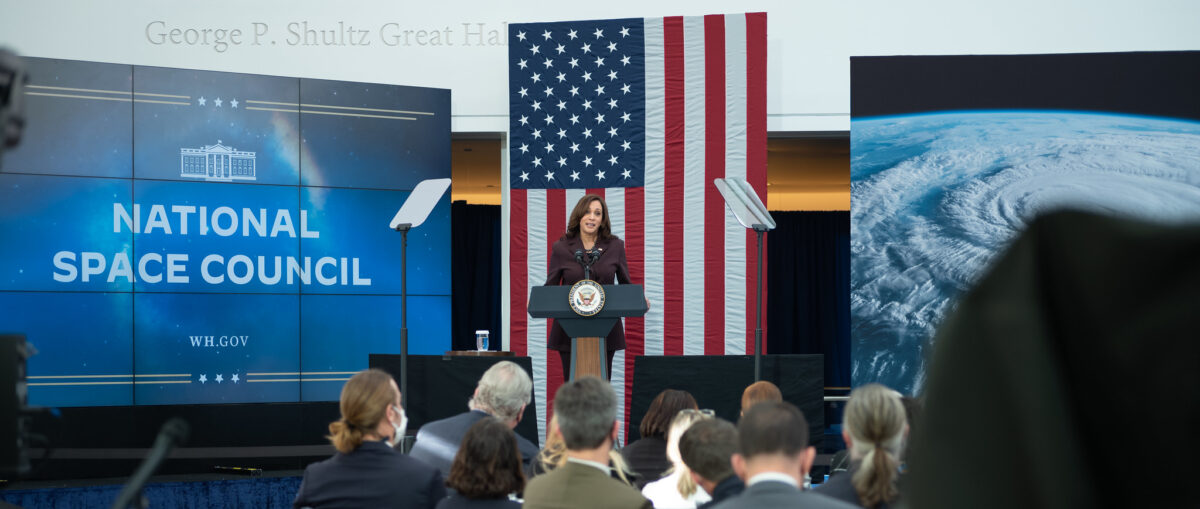
Vice President Kamala Harris delivers opening remarks at the first meeting of the National Space Council, Wednesday, Dec. 1, 2021, at the U.S. Institute of Peace in Washington. Vice President Kamala Harris delivers opening remarks at the first meeting of the National Space Council, Wednesday, Dec. 1, 2021, at the United States Institute of Peace in Washington: NASA/Joel Kowsky
Staff Report –
WASHINGTON, D.C. – Vice President Kamala Harris is taking a leadership role in guiding United States policy in space, signaling that the focus of the Biden-Harris administration is going to be on the peaceful exploration of space and using our best minds in science, technology, engineering and math to help tackle the problem of climate change.
Chairing the first National Space Council meeting of the administration on Wednesday at the U.S. Institute of Peace in Washington, she led a discussion about how the United States should focus on the peaceful exploration of space and use the resources of NASA in the global struggle to deal with climate change due to global warming from the burning of fossil fuels for energy.
“Today, our nation and our world are more active in space than ever before,” Vice President Harris said in her remarks. “In this new era, we must see all the ways in which space can benefit Earth. We must see all the ways in which space can benefit the people of our nation and of all humanity. This perspective is central to our work as a council because, while exploration of space defined the 20th century, the opportunity of space must guide our work in the 21st.”
The Biden-Harris administration is expanding the numbers on the council and prioritizing the reduction of risk of a miscalculation or conflict in space, addressing as well as the climate crisis and building a stronger STEM workforce. Prior to the meeting, President Biden expanded the number of participants of the council by executive order to create the largest, most diverse space council in the nation’s history, according to a press release from NASA.
NASA Administrator Bill Nelson reflected on the agency’s STEM initiatives to support job creation and maintain America’s innovative and competitive edge.
“Just look at the sparkle in the eyes of children when the topic of space and spaceflight come up. It opens their little eyes into working to get involved,” Nelson said. “We saw that was the case with the Apollo generation. For a couple generations thereafter, look at the mathematicians and the technicians.”
Nelson highlighted the breadth of NASA’s STEM engagement, from the more than 6,400 internships, fellowships, and other direct student higher education awards made in the last year alone, to the $35 million in direct financial support to students enrolled in higher education programs.
Vice President Harris also announced the release of the United States Space Priorities Framework, which will guide the council’s efforts to develop and implement national space policy and strategy.
A recording of the meeting is available on NASA’s YouTube channel:
Watch it here:













